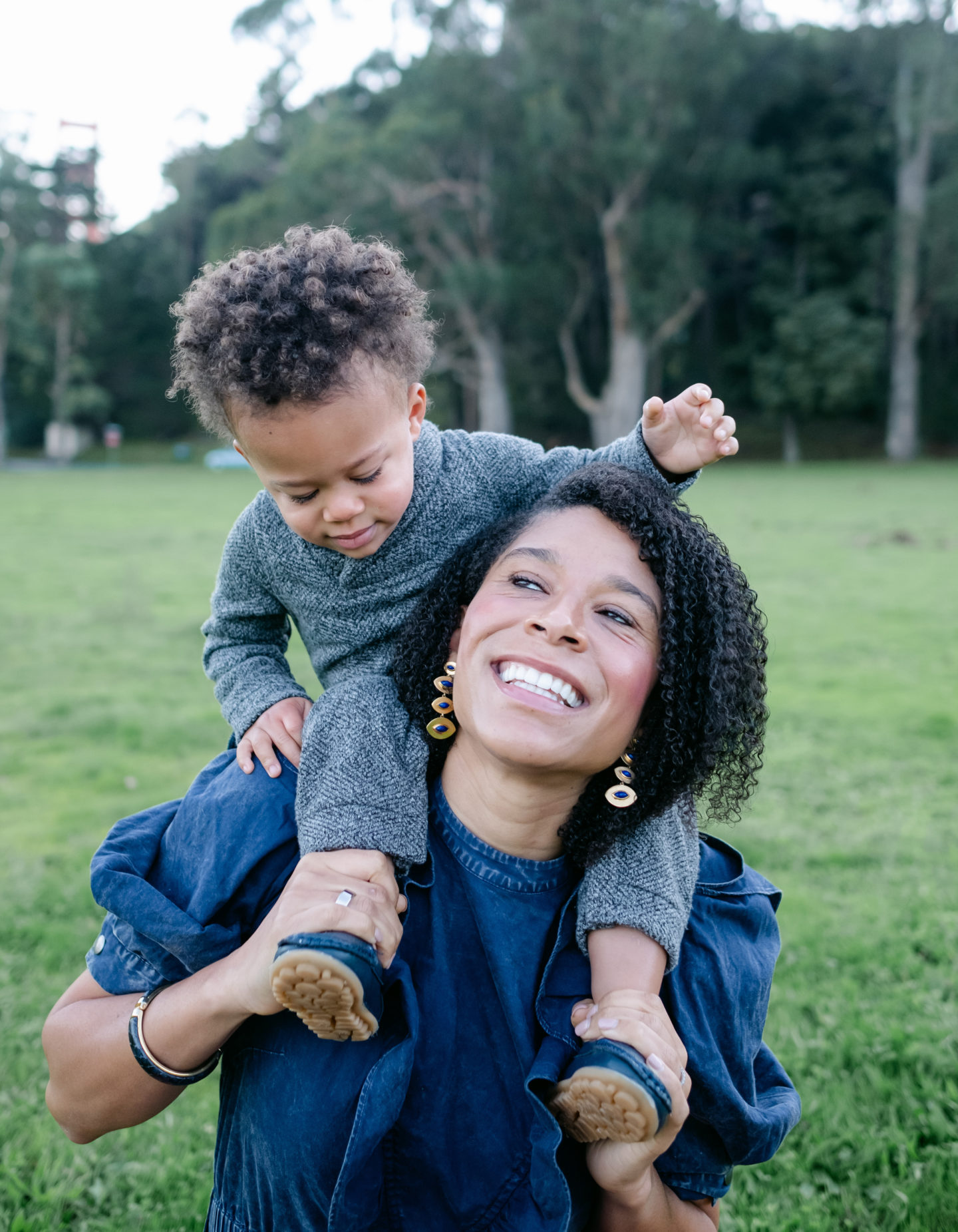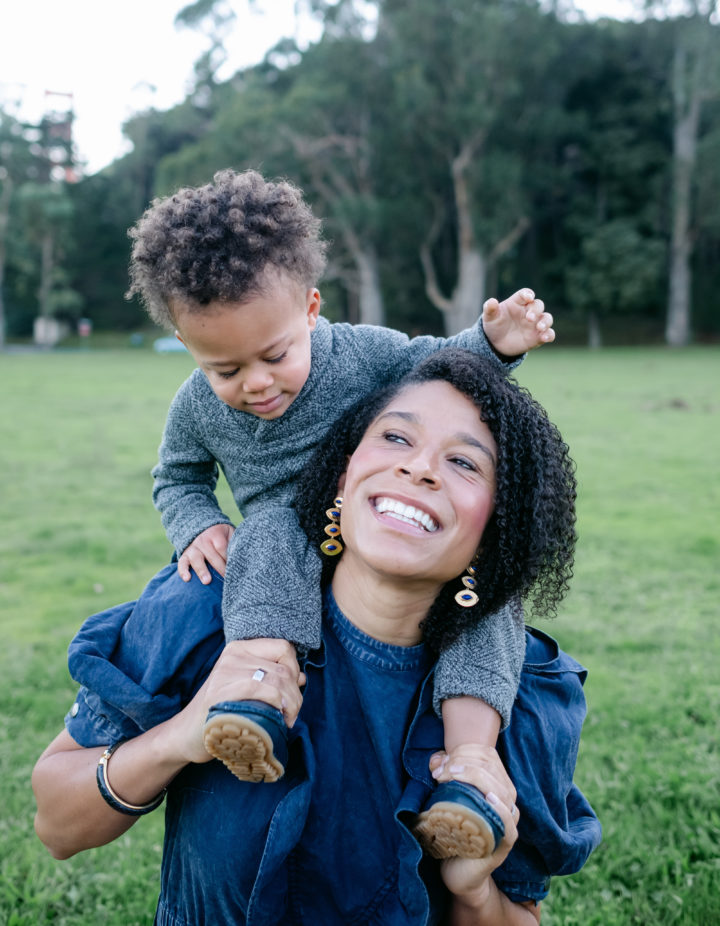In honor of Black Maternal Health Week, we sat down with three Black mothers whose organizations are seeking to create equitable birthing experiences for Black and Brown women as well as access to unbiased, supportive healthcare.
Kimberly Seals Allers created Irth, a Yelp-like app where women can find prenatal, birthing, postpartum and pediatric reviews of care from other Black and Brown women. Maya Hardigan founded Mae, a pregnancy and postpartum platform tailored to Black womens’ needs. And, as chief executive officer of Expectful, a haven of holistic care for moms, Nathalie Walton is spreading the gospel of mindfulness and meditation to advance safe pregnancy outcomes.
Check out our conversation, below.
What do you think is the biggest issue plaguing Black Maternal Health right now?
Maya: An inherent lack of trust in the healthcare system, stemming from disparate care. Far too often, Black mothers are not listened to and our needs are not adequately addressed. This leads to a fragmented relationship with our caregiver – the person we should objectively trust and feel most comfortable relying on during this important life stage.
That mistrust exists in part because of a lack of resources that account for our lived experiences in care. Who we are matters, and solutions that offer whole-person care can reduce the fear and anxiety we often feel, and instead, lead to joyful, respectful, safe and best-in-class prenatal and postpartum experiences.
A number of recent studies that underscore what we have long understood: disparities in care, implicit bias, and sometimes explicit racism, directly impact the health outcomes and life spans of Black women and our babies. Higher mortality and morbidity, C-section rates and pre-term deliveries impact our individual health, our families, our broader communities and the long-term health of our children.
Nathalie: Systemic racism is a constant issue for most Black birthing people. Regardless of intellect, wealth, or social status, Black women aren’t taken as seriously – and that shows up beyond anecdotal trauma. It’s a statistical fact. Linda Villarosa wrote for The New York Times, “Education and income offer little protection. In fact, a black woman with an advanced degree is more likely to lose her baby than a white woman with less than an eighth-grade education.”
We hear and see this devastating feedback time and time again. Black women are undervalued. They are not monitored as carefully as white women are, and when they do present with symptoms, they are often dismissed.
Kimberly: The lack of transparency and community accountability for the quality of care of Black women and birthing people within hospital systems and not enough robust Black patient experience data to help hospitals improve in real-time. Despite the widespread academic documentation on the pervasiveness of racism and bias in medical care there has been an abject failure to create monitoring or accountability mechanisms. Taking an anti-bias training is the most “innovative” option out there for a problem that is complex yet deadly to Black people. Meanwhile, there is no evidence that anti-bias training works and no one ever checks in to see if patient experiences are actually improving after the training. We need more innovation, more accountability and more transparency to drive change.
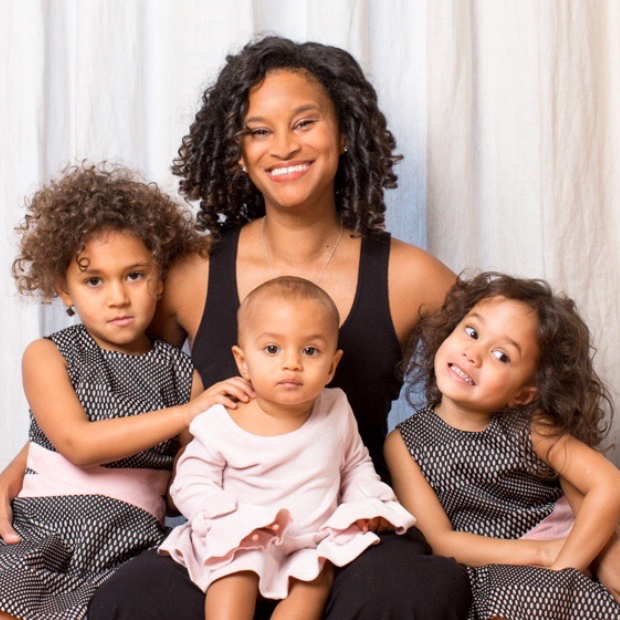
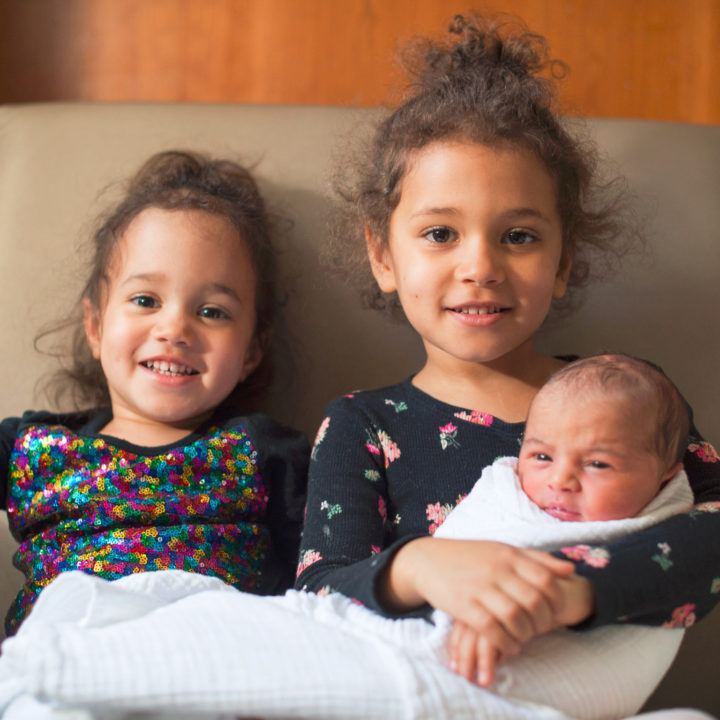
What can we do collectively to improve maternal health for Black women?
Kimberly: We can’t change what we can’t see. If we are not willing to see Black birthing people and hear them–via robust ongoing feedback mechanisms, not the annual 7-person focus group–then we can’t address the issue. Next, we need all hands on deck to address this issue, including working to make the systems that help improve birthing outcomes for Black women more accessible. Collectively we need to push to decriminalize midwives in every state, we need doulas who are paid a fair wage and we need for childbirth centers and out-of-hospital options. As a country that clamors for options (have you seen your cereal or spaghetti sauce aisle at the supermarket recently?) yet when it comes to options for birthing–all parents in this country are being denied options. Many of those options could help improve birthing outcomes for Black women.
Nathalie: We must listen to Black women and learn how to confront unconscious bias as a society. In my personal experience, I’ve had the best medical outcomes when doctors self-corrected for potential bias. In my postpartum experience, I’ve had lingering pain in my abdomen. Many doctors dismissed my pain, but the best doctors said that if I’m experiencing pain, it’s their duty to listen to me and rule out any potential illness. If more doctors, nurses, bosses, and friends can take proactive steps to correct bias, more Black women will have a chance to be heard and hopefully helped sooner.
Maya: Collectively, we need to advocate for equitable care. That means working to ensure Black women – regardless of location, education, or income – have access to the solutions that we know work. Access to community-led, person-centered pregnancy support, like that provided by doulas and midwives, pregnancy education, provider and facility choice, and flexible access to care, among other things, are what we all need to fight for to improve Black maternal health experiences and outcomes.
For those of us working to create solutions on the business side, I think it’s important to align with healthcare payers to collaboratively show that a more robust investment in minority health serves the system as well. Whether these are conversations with someone who believes health equity should be a right for all, or someone who is primarily driven by the bottom line, it is incumbent on us to make a strong, data-driven case that wrapping our most vulnerable mothers in the support they need will minimize avoidable poor outcomes and ultimately reduce clinical costs of care.
Collectively, we need to advocate for equitable care.
How do your respective organizations aim to elevate maternal care for Black women?
Maya: Mae aims to elevate maternal care for Black women with a novel solution that marries complete digital care with culturally competent, on-the-ground support. Our goal with Mae was to foster a space that, as Black expectant mothers, we did not have but desperately needed and wish we did have when we were pregnant – a place where we can find culturally relevant information, culturally competent support, community, resources and supplemental care.
Mae is addressing access gaps and bolstering the physical and emotional well-being of the women we serve through continuous engagement, risk assessment, early symptom awareness, and a community-led model of support.
Our model is B2B, working with health insurance companies, including Medicaid plans, and employers to offer Mae as a supplemental solution for Black mothers, and in doing so, we endeavor to be a resource that drives positive pregnancy experiences and outcomes.
Kimberly: Irth acknowledges what Black people have always known–we have to create tools to save ourselves. Irth (as in the word birth, but without the B for bias) is the first of its kind review and rating engine that puts the power in the hands of Black parents to inform and protect each other by sharing where we are getting good care at Ob/GYns, hospitals and pediatricians and we are not.
Irth accepts reviews from mothers, fathers and doulas to give our users a full range of perspectives on care. On the back end, Irth turns qualitative reviews into real-time data to teach hospitals, payers, and providers how to improve our care by centering our lived experience instead of waiting for another Black maternal death to analyze their processes. At Irth, we say, let’s learn from the living. We believe our front end mission to harness the consumer power of Black parents to drive transparency and accountability coupled with our robust repository of Black patient experience data in maternity and infant care can be a transformative contribution to Black maternal health outcomes.
Nathalie: Mindfulness is scientifically proven to improve pregnancy outcomes. I’m excited to share a study recently published in the Journal of Perinatology that examined the impact of a mindfulness practice on pumping NICU mothers. The participants in the study were given the Expectful app, and the results found that mothers who engaged in meditation with the app saw higher breastmilk production – averaging 7.5 more ounces per day, 100% increase in skin-to-skin contact, and reduced Edinburg postpartum depression scores.
Expectful is a low-cost, high accessibility tool for improving maternal health outcomes, and we aim to make Expectful available to everyone, including those in need. In honor of Black Maternal Health Week, we partnered with Johnson’s Baby to provide 700 free one-year subscriptions to Black mothers to represent the estimated 700 women who die each year in the U.S. from maternal health-related causes, the majority of which are Black women.


How did your pregnancy and delivery serve as a catalyst for igniting change?
Maya: The stories shared by family, friends, and even strangers, have all been a catalyst for my vision for Mae.
Kimberly: I created Irth because I wish I had it when I gave birth. At the time of my first child, I did a lot of research, read the media “Best of” lists and real alot of parenting blogs to get information on the “Best” place to give birth. I went to the same hospital and left feeling disrespected, unseen and traumatized. I literally fought to have my baby with me, when I read this was standard practice. I was breastfeeding and they gave my baby formula against my wishes and it seemed that everything that I read was standard, I had to fight for. And after having a C-section that I still can’t explain, I had little energy for the fight. But the reality is, at that time in my life
I was not yet married and I was completing graduate school so I was on student insurance. And I was treated like an unwed Black woman with basic insurance. It was a rude awakening that people are not being treated the same way even at the same place, and that who you are can impact the care and respect you receive.
Maya: I am a mom of three girls and I had three c-sections. Despite having done everything I knew to do to best prepare for my birthing experience, I was still faced with a risk I didn’t fully understand in the intense moment of delivery and ultimately. My husband and I took birthing classes, I had a birth plan, we got to know every OB in my practice and I shared the experience I desired, but during delivery, when crucial decisions had to be made, I felt I had little control.
I reflect on my experience and am grateful to have come out safely and delivered a healthy baby girl. I know what I went through pales in comparison to what so many other Black women and families experience – but it also wasn’t the experience I so desperately wanted or deserved. The deeper I get into my work with Mae, the more I can appreciate the potential benefits of having supplemental support and advocacy throughout the birth and postpartum period, and particularly during labor, which is such a vulnerable time, even for the most prepared mama. So yes, my own experience plus the experiences of my entire community inform every move we make as we continue to grow Mae into the space we hope will best address the specific needs of women like us.
Nathalie: During pregnancy, the decline in my physical health correlated with a decline in my mental health, and I was terribly stressed and anxious about my baby’s life. Like so many other Black women, my pregnancy and delivery became a life-or-death situation.
Doctors and scientists have studied the benefits of meditation on pregnant women and they have shown that it can help moms-to-be throughout pregnancy and especially at birth. I discovered the Expectful app in my third trimester and began meditating heavily. Within a week of beginning meditation, my NST and doppler tests stabilized, and I unexpectedly made it to term—a checkpoint my doctors never thought I would hit. As a Black woman who faced unfavorable odds, I was grateful to find a tool as accessible as meditation, and since experiencing the lifesaving effects firsthand, it has become my mission to promote awareness around the power of mindfulness in pregnancy outcomes- particularly in underserved communities.

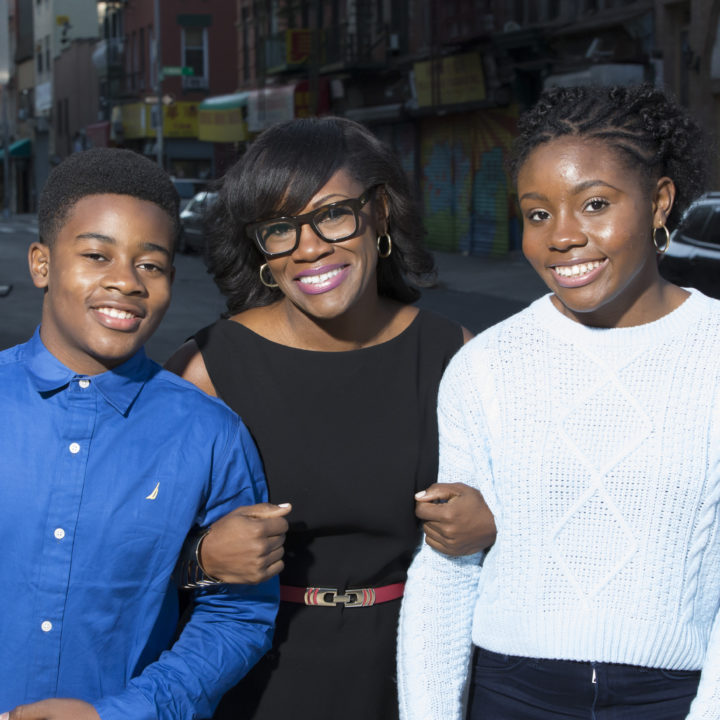
What do you hope the future of Black Maternal Health looks like?
Maya: I think it’s two-fold – I have hopes for the women we serve and I have hopes for the industry that serves them.
For expectant women, I hope that they have broad choices in their care and that those choices are respected. I hope they are informed and surrounded by resources that address and speak to the complexity of needs we have as Black women, and that the totality of our experiences are acknowledged and considered in our care. I hope that best in class maternal healthcare becomes the expectation, not the exception, for women who look like me.
For those who serve Black mothers, I hope to see a robust and continuous investment in the development of a diverse workforce of Black birthing experts. Whether it be OBs, midwives, doulas, lactation consultants, maternal mental health providers or other, I hope there are more providers of color to meet the needs of the increasing number of Black women who seek cultural alignment in their maternal healthcare.
Nathalie: I hope that every Black woman can thrive in pregnancy and motherhood. I hope our country can find ways to reduce implicit bias, and I hope that more women and doctors can embrace evidence-based holistic wellness practices that improve birth outcomes.
Kimberly: Joyful and equitable. Black women deserve to not just survive childbirth, they deserve to thrive. This is our birthright.
